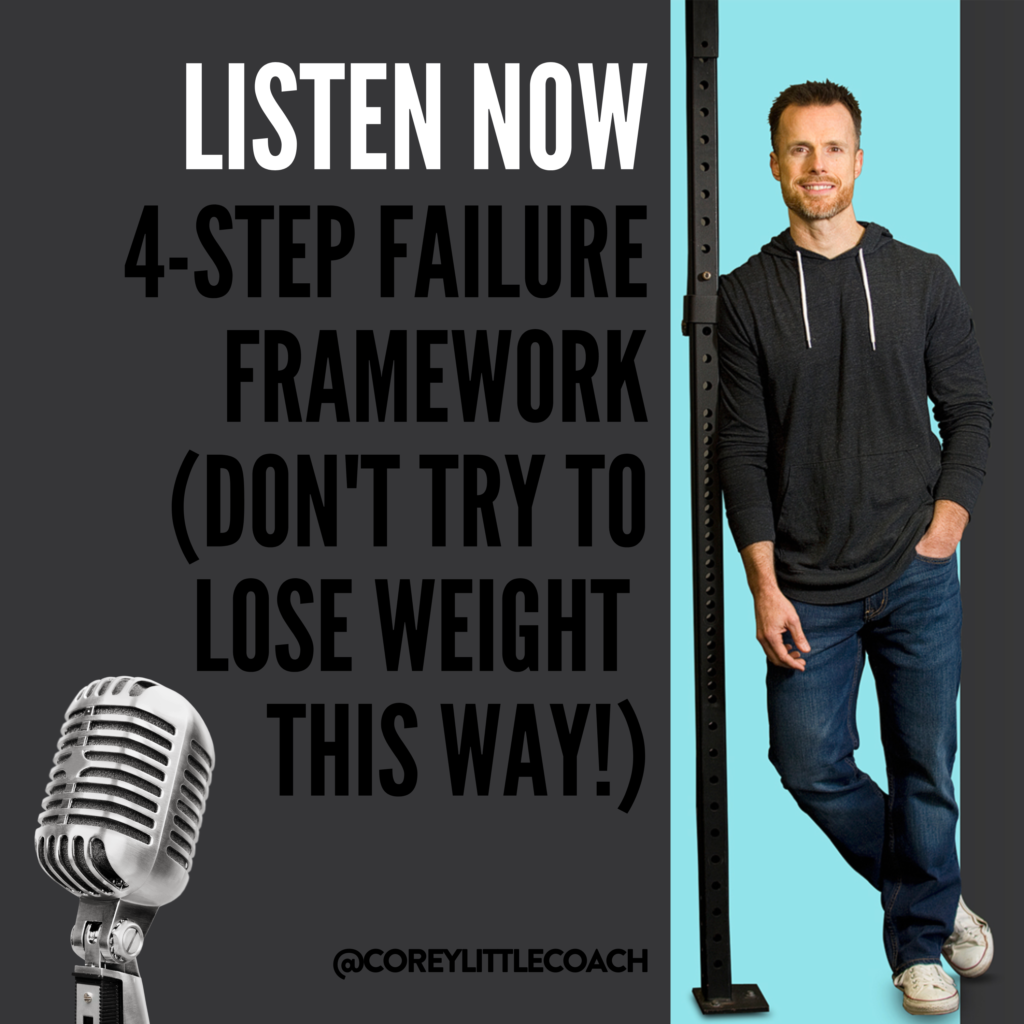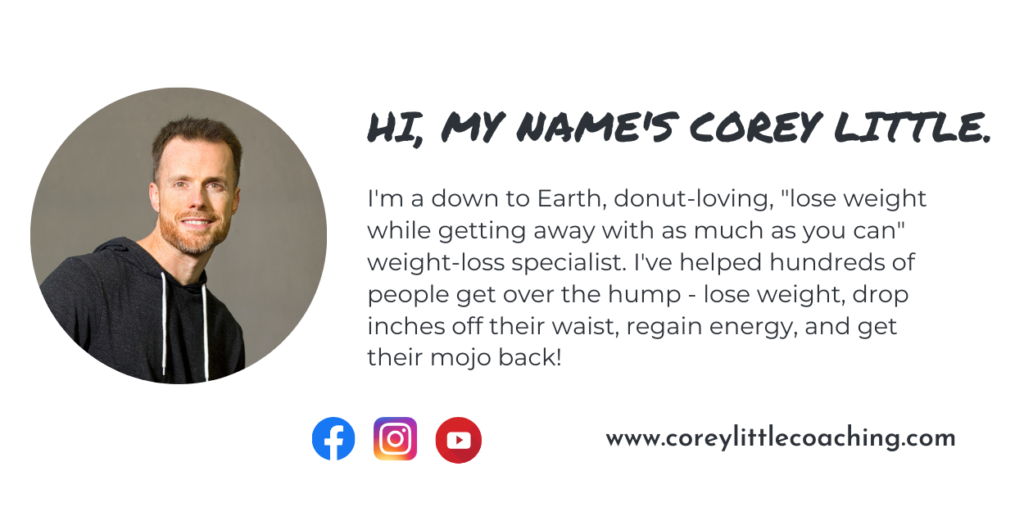
Listen on Spotify | Listen on Apple Podcast | Listen on Stitcher
In the quest for improved health, weight loss, and a better body, we often find ourselves falling into the trap of self-defeating patterns. In this blog post, we’ll dissect a familiar transcript to uncover the hidden lessons within a four-step failure framework. By understanding what not to do, we can pave the way for true success and lasting change. Let’s dive into the 4-step failure framework…and remember, don’t try to lose weight this way!
4-Step Failure Framework (Don’t Try To Lose Weight This Way!)
Step 1: Overwhelm – The All-or-Nothing Mentality
The first step in the failure framework is the idea of doing it all. This approach stems from the belief that if you’re not tackling every aspect of your health journey simultaneously, you won’t get results. However, this leads to overwhelming pressure and burnout. Trying to change your diet, exercise routine, sleep patterns, and more all at once sets you up for failure. The result? Overwhelm, frustration, and a high likelihood of giving up before even starting.
Step 2: Perfectionism – The Need to Do It Right
Following the all-or-nothing mindset, the second step emphasizes doing it right. The implication here is that you must execute every aspect of your health journey flawlessly, or else you’re wasting your time. This perfectionist approach sabotages progress, as it’s impossible to maintain perfection over the long term. The cycle of aiming for perfection and then berating oneself for not achieving it is emotionally exhausting and detrimental to self-esteem.
Step 3: Negative Self-Talk – Being Tough with Yourself
The third step encourages being tough on oneself and eliminating any semblance of self-compassion. This harsh self-criticism only amplifies feelings of failure and inadequacy. While some level of discipline is necessary for change, turning self-talk into an internal drill sergeant creates a hostile relationship with oneself. Over time, this negative self-talk erodes self-confidence, making it difficult to stay committed to any goal.
Step 4: Isolation – Refusing Help and Support
The final step is the idea of going it alone. This mentality suggests that seeking help is a sign of weakness, and that you should be able to figure it all out on your own. This isolating approach limits opportunities for growth and accountability. In reality, humans thrive on connection and support. Surrounding yourself with like-minded individuals who understand your struggles and can offer guidance can make a world of difference.
Breaking Free from the Failure Framework
Now that we’ve dissected the four-step failure framework, it’s time to reverse engineer a success strategy:
Embrace Incremental Changes: Instead of overwhelming yourself with a complete overhaul, focus on making small, sustainable changes. Start with one aspect, like improving your breakfast choices, and gradually build from there.
Embrace Progress, Not Perfection: Recognize that perfection is an illusion. Celebrate every step forward, no matter how small. Allow yourself room for mistakes and learning. Each setback is an opportunity for growth.
Practice Self-Compassion: Replace negative self-talk with self-compassion. Treat yourself with the same kindness and understanding you would offer a friend. Positive reinforcement is more motivating than harsh criticism.
Seek Support and Accountability: Don’t be afraid to ask for help. Join a supportive community, find a mentor or coach, or share your journey with a friend. Surrounding yourself with positivity and encouragement boosts your chances of success.
4-Step Failure Framework (Don’t Try To Lose Weight This Way!)
The four-step failure framework, as depicted in the initial transcript, highlights common pitfalls that can hinder progress on your health journey. By understanding these traps, you can rewrite the script for success. Embrace gradual changes, prioritize progress over perfection, practice self-compassion, and invite support into your journey. Remember, the path to success is not a solo endeavor but a collective effort guided by growth and self-care.

